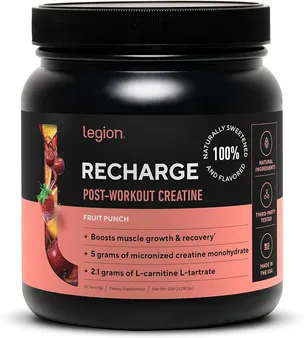Table of Contents
Welcome to Kizworld, your gateway to unlocking the transformative power of calisthenics. We believe that with the right combination of nutrition and targeted supplementation, you can push your calisthenics journey to the next level. Embark on a journey of strength, agility, and aesthetics as we unveil the secrets behind The best calisthenics supplements and nutrition strategies. Get ready to redefine your limits and achieve the body you've always desired.
The Best Calisthenics Supplements and Nutrition for Peak Performance
I. Athletes and Nutrition: Macronutrients, Micronutrients, and Supplementation
Athletes have unique nutritional needs to support their intensive training and competition demands. A balanced diet rich in macronutrients, micronutrients, and essential supplements can optimize performance, recovery, and overall health. Macronutrients, including carbohydrates, proteins, and fats, provide the body with energy, building blocks for muscle tissue, and essential fatty acids. Micronutrients, such as vitamins and minerals, play crucial roles in various bodily functions and support overall well-being. Supplementation can further enhance an athlete's nutritional intake, addressing specific needs and deficiencies.
Macronutrients: The Foundation of Athletic Performance
- Carbohydrates: The primary source of energy for the body, carbohydrates are essential for fueling workouts and maintaining endurance. Complex carbohydrates, found in whole grains, fruits, and vegetables, provide sustained energy release, while simple carbohydrates, such as sugars, offer a quick energy boost.
- Proteins: Essential for building and repairing muscle tissue, proteins are vital for muscle growth, strength, and recovery. Lean protein sources include poultry, fish, beans, and tofu.
- Fats: Contrary to popular belief, fats are crucial for hormone production, cell function, and energy storage. Healthy fats, found in nuts, seeds, avocados, and olive oil, support overall health and performance.
Micronutrients: The Unsung Heroes of Athletic Health
- Vitamins: A diverse range of vitamins, including vitamins A, C, D, and E, play essential roles in immune function, energy production, and tissue repair.
- Minerals: Minerals such as calcium, iron, and magnesium are involved in bone health, muscle function, and nerve transmission, among other vital processes.
Supplementation: Enhancing Athletic Potential
- Creatine: A natural substance found in muscle cells, creatine supplementation has been shown to improve muscle strength and power output, particularly in high-intensity activities.
- Protein Powders: For athletes struggling to meet their protein needs through diet alone, protein powders offer a convenient way to increase protein intake and support muscle growth and recovery.
- BCAAs: Branched-chain amino acids (BCAAs) are essential amino acids that play a role in muscle protein synthesis and recovery. BCAA supplements may be beneficial for athletes engaged in intense training.
Conclusion: A Symphony of Nutrition for Athletic Success
By prioritizing a balanced diet rich in macronutrients, micronutrients, and essential supplements, athletes can optimize their performance, enhance recovery, and support their overall health. A well-rounded nutritional approach, tailored to individual needs and goals, is the cornerstone of athletic success.
Related Posts:
- The Best Calisthenics Exercises and Variations
- How to Learn the Basic Calisthenics Skills and Progressions
- The Top Calisthenics Competitions and Challenges
II. Choosing Calisthenics-Specific Supplement
Choosing Calisthenics-Specific Supplement
Natural vs. Synthetic Supplements
The debate between natural and synthetic supplements often arises. Natural supplements are derived from plant or animal sources, while synthetic supplements are produced in a lab. Both types have their pros and cons.
- Pros of Natural Supplements:
- Generally regarded as safe (GRAS) by regulatory agencies.
- May provide a wider range of nutrients.
- May be better absorbed and utilized by the body.
- Cons of Natural Supplements:
- Can be more expensive than synthetic supplements.
- May not be as potent.
- May have more adverse effects.
- Pros of Synthetic Supplements:
- More concentrated and potent.
- More consistent in quality.
- May be more affordable.
- Cons of Synthetic Supplements:
- May not be as safe as natural supplements.
- May not be as well-absorbed.
- May have more adverse effects.
Goals or Benefits | Suggested Supplement | Type |
Building muscle | Creatine | Synthetic |
Improving strength | Beta-alanine | Both |
Reducing muscle soreness | Tart cherry extract | Natural |
Boosting energy | Caffeine | Both |
Supporting joint health | Glucosamine and chondroitin | Both |
Replenishing Lost Electrolytes
During intense calisthenics workouts, you sweat. Sweat is composed of water and electrolytes. Electrolytes are minerals that help regulate nerve and muscle function. It is crucial to replenish these electrolytes to maintain optimal performance.
- Key Electrolytes for Calisthenics:
- Sodium
- Potassium
- Magnesium
- Calcium
- How to Replenish Electrolytes:
- Drink plenty of water.
- Consume electrolyte-rich foods like fruits and vegetables.
- Consider using an electrolyte supplement if you engage in prolonged or intense workouts.
- Signs of Electrolyte Imbalance:
- Muscle cramps
- Nausea
- Headaches
- Fatigue
Related Posts:
- How to Do a Handstand: Step-by-Step Guide and Tips for Beginners
- The Benefits of Gymnastics for Kids: Building Strength, Flexibility, and Confidence
III. Calisthenics Supplement and Nutrition Recommendations
Calisthenics Supplement and Nutrition Recommendations
Fueling your calisthenics journey with the best supplements and nutrition is crucial to maximize your results. Let's dive into specific choices that can help you reach your fitness goals.
Our bodies demand proper nutrition to function optimally during intense calisthenics workouts. Macronutrients, like carbohydrates, proteins, and fats, provide energy and support muscle growth. Visit our blog on Essential Macronutrients for Calisthenics to learn more.
Macronutrient | Function | Sources |
|---|---|---|
Carbohydrates | Energy source, glycogen replenishment | Whole grains, fruits, vegetables |
Proteins | Muscle building, repair, and recovery | Lean meats, poultry, fish, eggs, dairy |
Fats | Hormone production, cell function, energy storage | Nuts, seeds, avocados, olive oil |
Vitamins and minerals play a crucial role in energy production, muscle function, and overall health. Read our post on The Role of Vitamins in Muscle Performance to understand their significance.
- Vitamin C: Supports collagen synthesis, boosts immunity
- Vitamin D: Facilitates calcium absorption, enhances bone health
- Vitamin E: Protects cells from oxidative damage
- Calcium: Essential for bone health, muscle contraction
- Iron: Carries oxygen to muscles, prevents fatigue
- Potassium: Regulates fluid balance, muscle function
Natural supplements derived from plants and herbs can provide additional benefits. If you're considering supplements, consult our guide on Natural vs. Synthetic Supplements.
Electrolytes, lost through sweat during exercise, need to be replenished. Our article on Replenishing Lost Electrolytes offers insights into maintaining hydration and mineral balance.
For faster muscle recovery, certain supplements can aid in the process. Explore our post on Supplements for Enhanced Recovery to make informed choices.
Simple nutrition hacks can optimize your calisthenics performance. Check out our guide on Nutrition Hacks for Calisthenics for practical tips.
IV. Healthy Nutrition for Calisthenics: Macronutrient Balance
Dialing in Your Macronutrient Ratio
- Calistenics athletes require tailored macronutrient ratios to fuel intense workouts
- Different athlete's specific needs require unique macronutrient breakdowns
- Start with a balanced ratio and adjust based on individual goals
To optimize your performance and create the perfect body, it's important to know what macronutrients are and how to adjust your diet for them. Macronutrients are the three main components of food and include carbohydrates, proteins, and fats. Knowing the ideal ratio depends on body type and goals. Consider total daily caloric need and personal preferences when deciding how much of each macronutrient should be consumed on a daily basis. Once you've established this macronutrient breakdown that works best for you, it's time to start implementing it into your meal plan.
The Role of Protein
Protein | Functions | Sources |
|---|---|---|
Carbohydrates |
Protein is king when it comes to calisthenics. Aim for 1.2-1.7 grams per kilogram of body weight each day. This not only helps build muscle but promotes fat loss and optimal recovery from hard sessions.
The Importance of Carbohydrates
Carbohydrates | Functions | Sources |
|---|---|---|
Carbohydrates |
Carbohydrates are vital for energy and recovery. Aim for 4-7 grams per kilogram of body weight, depending on activity level and goals. Adjust intake based on how you feel during your workouts.
Understanding Fats
Fats | Functions | Sources |
|---|---|---|
Fats |
Fats are an essential part of any diet and should not be feared. Aim for 0.8-1.2 grams per kilogram of body weight daily from healthy fat sources.
The Bottom Line
Personalized macronutrient ratio is key for reaching calisthenics goals. Find your ideal balance by experimenting with different intake levels and tracking progress over time. Consider consulting a registered dietitian or sports nutritionist for personalized guidance tailored to your needs. Remember, macronutrients are powerful tools to fuel your journey toward a healthier, stronger you.
Discover more calisthenics nutrition strategies in our related posts on Calisthenics Nutrition: Essential Supplements and Macronutrient Balance and Nutrition Hacks for Calisthenics. Unleash the true potential of your calisthenics training by optimizing your macronutrient intake today!
V. Conclusion
Through this comprehensive guide, we've explored the intricacies of calisthenics nutrition and supplementation, providing you with a roadmap to optimize your training and achieve remarkable results. Remember, your body is a temple, and nourishing it with the right nutrients is essential for unlocking its full potential. Whether you're a seasoned athlete or just starting your calisthenics journey, these strategies will empower you to push your limits, recover effectively, and witness transformative progress. Embrace the power of natural movement, fuel your body with the best calisthenics supplements and nutrition, and unlock the limitless potential that lies within you.